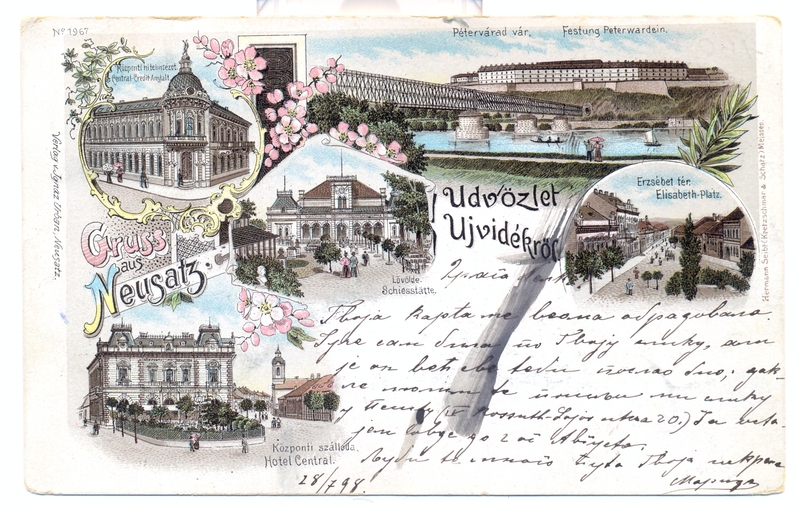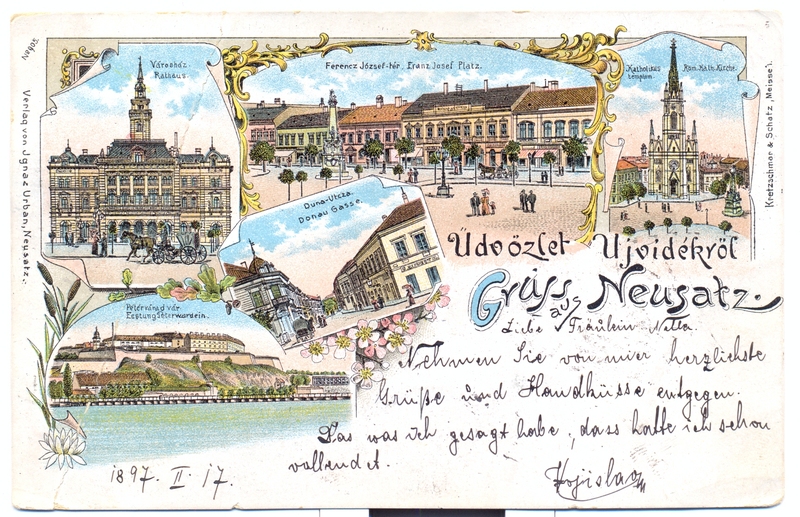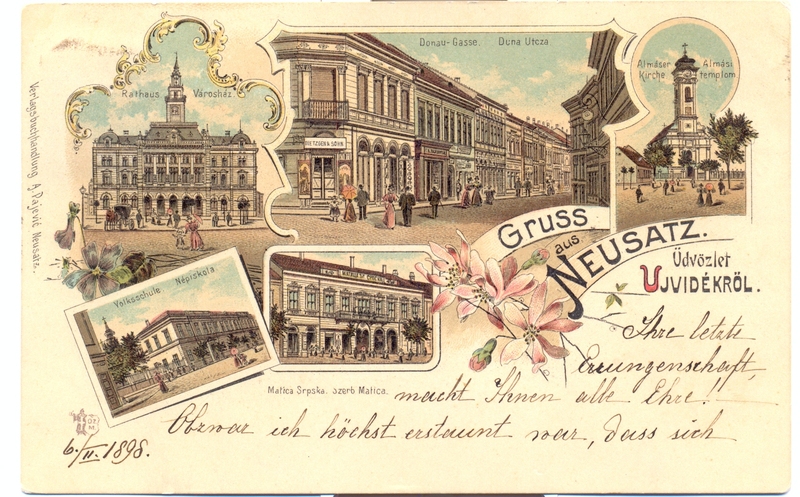Poets about the Novi Sad

Miloš Crnjanski (1893–1977)
I CAME TO NOVI SAD
(Excerpt from Komentari uz Liriku Itake [Commentary on the Lyrics of Ithaca])
Carefree as I was, I came to Novi Sad and stayed there because of a beautiful young woman, the sister of a then-famous musician, who, with her two little girls, had also come to spend the summer with her brother. She was the wife of a famous Serbian officer. I jumped headfirst into the muddy water of the Danube after that woman.
At that time, Novi Sad had just started to swim. And we were not swimming freely in the waves of the river but in some boxes, which were called bathrooms and resembled a chicken coop on the water. Women were dressed up for bathing as actresses for a play at the Follies Bergère. During the last war, the Hungarians killed Serbs and Jews in those bathrooms as in slaughterhouses.
I had come from Vienna in a jacket the colour of light green olives, in white deerskin shoes, with a black tango playerʼs hat. I was a typical phenomenon of my time.
That is how I entered not only the Matica Srpska in Novi Sad but also jail after the police arrested me in Szeged.
Novi Sad was never happier than on the eve of the First World War. Salajka resounded with bećarci, and in the Bela Lađa restaurant, they sang komitadji songs and songs from the Serbian war. Prečani, as is often the case with peoples on the borders, were exhilarated by the Serbian victories in the Bulgarian war...
Miroslav Antić (1932–1986)
AN UNWRTITTEN CHANSON FOR NOVI SAD
(excerpt)
In autumn, I always disappear from Novi Sad. I do it because every November, as if by some twisted rule, I fall in love again with the old bridge under the fortress, with the labyrinth of winding alleys around the Matica Srpska and Temerinska Market, with two swans who cough in the lake of Dunavski Park, with a violin at Maroš’s or two violins at Štolc’s. I cannot resist these streets, this hustle and bustle of passers-by, the fluttering of the morning and evening papers on the boulevard, and the colourful shop windows that stare with big square eyes into the mist and the dreary grey rainy day.
You probably know what it means: to lose yourself on some corner, along some tree lines, under a window... It means: to stay here forever. And, let it seem incredible and romantic, it also means: even there in Saint-Germain, to remember the small buffet Lovac behind the seat of Dnevnik, or under the Kremlin towers, to think with nostalgia of the baroque façade of the Novi Sad municipality building, or in the concrete towers of Manhattan, to wish for a peaceful afternoon on the slopes of the Kamenica coast.
They asked me once why I was so infatuated with Novi Sad like a teenager. I could not answer. Because it is the same with the dearest city as with the dearest woman: we will never be able to explain to ourselves or others what draws us to them.
Images


